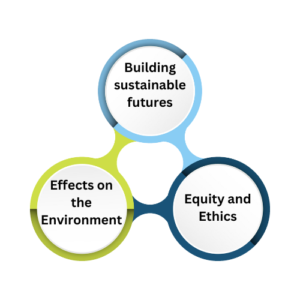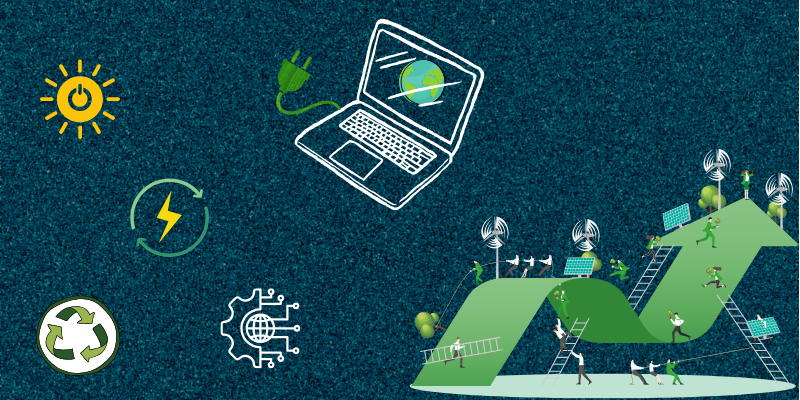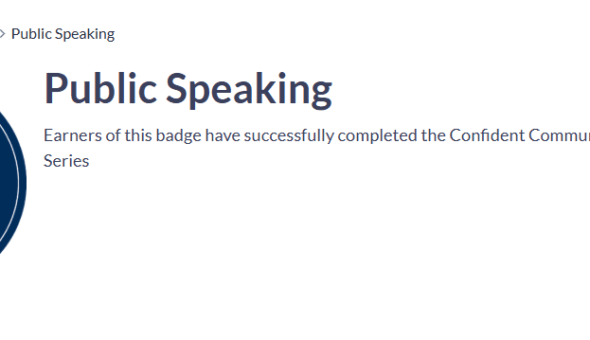Do we need to think more about the environmental impact of our digital choices? In this blog we explore what ‘digital sustainability’ means, why we should consider it and how to address it here at the University of Bath.
Digital communication and language increasingly shape ‘our understanding of the world and the challenges it faces’ (Brown, 2014: 280). Technological advancements and digital innovations also play an integral role in shaping the educational landscape. The advent of generative AI and its widespread usage has highlighted the role of technology in guiding Higher Education.
The University of Bath digital strategy and the University Climate Action Framework highlight the need to have ethics and sustainability interwoven into every aspect of our learning and teaching. When making decisions regarding technological developments, we should consider the impact in relation to our responsibility to the environment. A well-informed approach to our digital choices can help all of us to reflect and better align our commitments to the world we live in
Digital Sustainability: What does it mean?
Digital sustainability refers to the actions and initiatives that explore the role of digital technologies relative to the natural environment and sustainability. It can be approached and understood in a few diverse ways. Firstly, it addresses issues related to the direct and indirect impact of digital technologies on the environment.
Secondly, digital sustainability considers exploring the potential of digital technologies in creating innovative solutions to sustainable development. Lastly, from an ethical standpoint looking at UN Sustainable Development Goals (SDGs), part of the digital sustainability initiative is to also consider the role of digital technologies in increasing versus decreasing global inequality gaps.

Skills Development: Why does it matter?
The Digital and Academic Skills team aim to equip students with skills that enable them to live, learn and work in a digital society. From that perspective, embedding wider issues like digital sustainability are a key part of our resource provision.
‘It is vital to embed topics like digital sustainability into our skills provision. In an increasingly interconnected world, understanding the environmental and societal impacts of our digital choices is essential. By equipping students and staff with the knowledge and tools to adopt sustainable digital practices, we empower them to make responsible decisions that align with broader institutional and global goals. This integration ensures that our learners are not just digitally skilled, but also conscientious contributors to a sustainable world.’
Dave Busby, Head of Digital and Academic Skill
The environmental impact of digital practices in higher education span from energy-intensive data storage in cloud servers to the electronic waste generated by technology upgrades.
For staff and students, addressing these impacts becomes essential in fostering a future where digital learning contributes to, rather than detracts from, sustainable resource management and reduced carbon footprints. These include addressing:
- The carbon footprint of ICTs throughout their life cycle is based on extraction of raw material, transportation, and supply chain.
- The effects due to energy utilisation and emissions due to changes in working practices and increase in data centres.
- The considerations around usage and disposal and circular economy practices such as prolonging the device life, responsible recycling, and e-waste management.
Call to Action: What can we do?
Digital sustainability can be embedded in our work and practices. This could include reflecting on our current digital choices and usage and aiming to make more sustainable improvements:
- Reducing digital footprint e.g., Reducing printing of documents, deleting unnecessary digital content to reduce data centre usage, considering switching off and unplugging devices more often to reduce energy consumption, prolonging device life and responsible e-waste management
- Embedding it into our practice: Educators can make this part of their learning and teaching by improving students' awareness of the topic and ensuring more green digital practices. Faculty and staff can think about how it can be embedded into their team practices at work. Faculty and staff can help by collaborating on the project and researching ways of supporting the initiative
- Lead from the front: People in positions of authority across the University can establish principles and ensure digital sustainability action in all parts of the University.
What is next: Crafting Digital Sustainability Skills?
Organizations have been aligning their digital strategies to their ESG strategies and actively seek individuals who exhibit awareness of such issues and are able to make an impact.
The Digital and Academic Skills team within the Skills Centre is launching a series of resources for students that embed sustainability into our digital skills provision. The Project aims to provide resources that help students develop these skills and be able to connect it to their employability - please look out for these in MySkills.
References:
Brown, S. A., 2014. Conceptualizing digital literacies and digital ethics for sustainability education. International journal of sustainability in higher education [Online], 15(3), pp.280-290.
Respond



